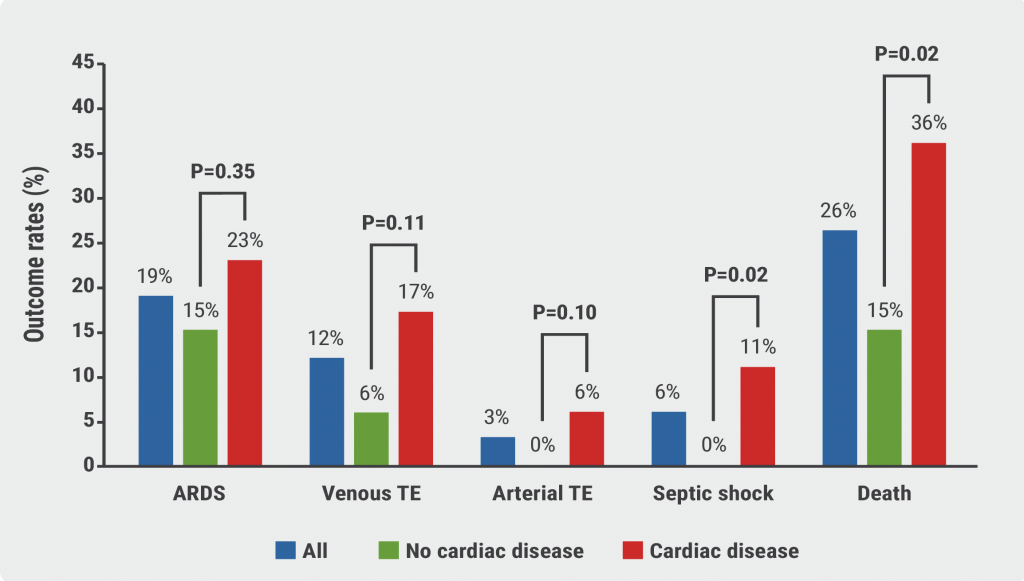"Given that SGLT2 inhibitors are a major breakthrough for the treatment of heart failure, it was important to understand whether their benefits were similar in women and men, which fortunately they are," Dr. John McMurray of the University of Glasgow, in the U.K., told Reuters Health by email.
For a prespecified secondary analysis of the DAPA-HF study published in JAMA Cardiology, Dr. McMurray and colleagues analyzed data from 4,744 patients (23% women) randomized to guideline-recommended therapy plus once-daily 10 mg dapagliflozin or placebo. All participants were New York Heart Association (NYHA) functional class II through IV, with an ejection fraction of 40% or less and elevated N-terminal pro-B-type natriuretic peptide.
Compared with men, women were older, more often Black and less often Asian, less likely to have atrial fibrillation, chronic obstructive pulmonary disease, or anemia, and had a lower estimated glomerular filtration rate.
Women had a higher systolic blood pressure, heart rate and, in those without atrial fibrillation, a higher baseline NT-proBNP; they were less likely to have an ischemic etiology or prior myocardial infarction.
Further, women had a higher ejection fraction, but worse NYHA functional class and lower Kansas City Cardiomyopathy Questionnaire (KCCQ) scores than men.
The primary outcome was the composite of an episode of worsening HF (HF hospitalization or urgent HF visit requiring intravenous therapy) or cardiovascular death.
As Dr. McMurray noted, compared with placebo, dapagliflozin reduced the risk of worsening HF events or cardiovascular death to a similar extent in both men and women (hazard ratios, 0.73 and 0.79, respectively).
Similar benefits also were seen for the components of the primary outcome and all-cause mortality.
In addition, irrespective of sex, dapagliflozin increased the proportion of patients with a meaningful improvement in symptoms, based on a total KCCQ symptom score increase of at least five points: men, 59% versus 50%; women, 57% versus 54%.
It also decreased the proportion with worsening symptoms based on a decrease of at least five points in the total score: men, 25% versus 34%; women, 27% versus 31%.
Results were consistent for the KCCQ clinical summary score and overall summary score.
Further, study-drug discontinuation and serious adverse events were no more frequent in the dapagliflozin group than in the placebo group in either men or women.
Dr. McMurray said his team plans to continue to investigate all heart failure treatments with regard to efficacy and tolerability and safety.
Dr. Richard Wright, a cardiologist at Providence Saint John's Health Center in Santa Monica, California, commented in an email to Reuters Health, "It is evident from this and similar recent studies that drugs such as dapagliflozin should be considered a modern 'standard of care' for heart failure patients, regardless of sex, and that the use of this drug improves patients' well-being and outcomes beyond what has been achieved with our previous heart failure treatments."
The study was funded by AstraZeneca. One of the authors is an employee and many, including Dr. McMurray, have other financial ties to the company.
SOURCE: https://bit.ly/3cVQD10 JAMA Cardiology, online March 31, 2021.
By Marilynn Larkin
Posted on
Previous Article
« Survival after Mohs surgery likely better at academic, high-volume facilities Next Article
Contraceptive and pregnancy planning essential in women with heart disease, experts advise »
« Survival after Mohs surgery likely better at academic, high-volume facilities Next Article
Contraceptive and pregnancy planning essential in women with heart disease, experts advise »
© 2024 Medicom Medical Publishers. All rights reserved. Terms and Conditions | Privacy Policy


